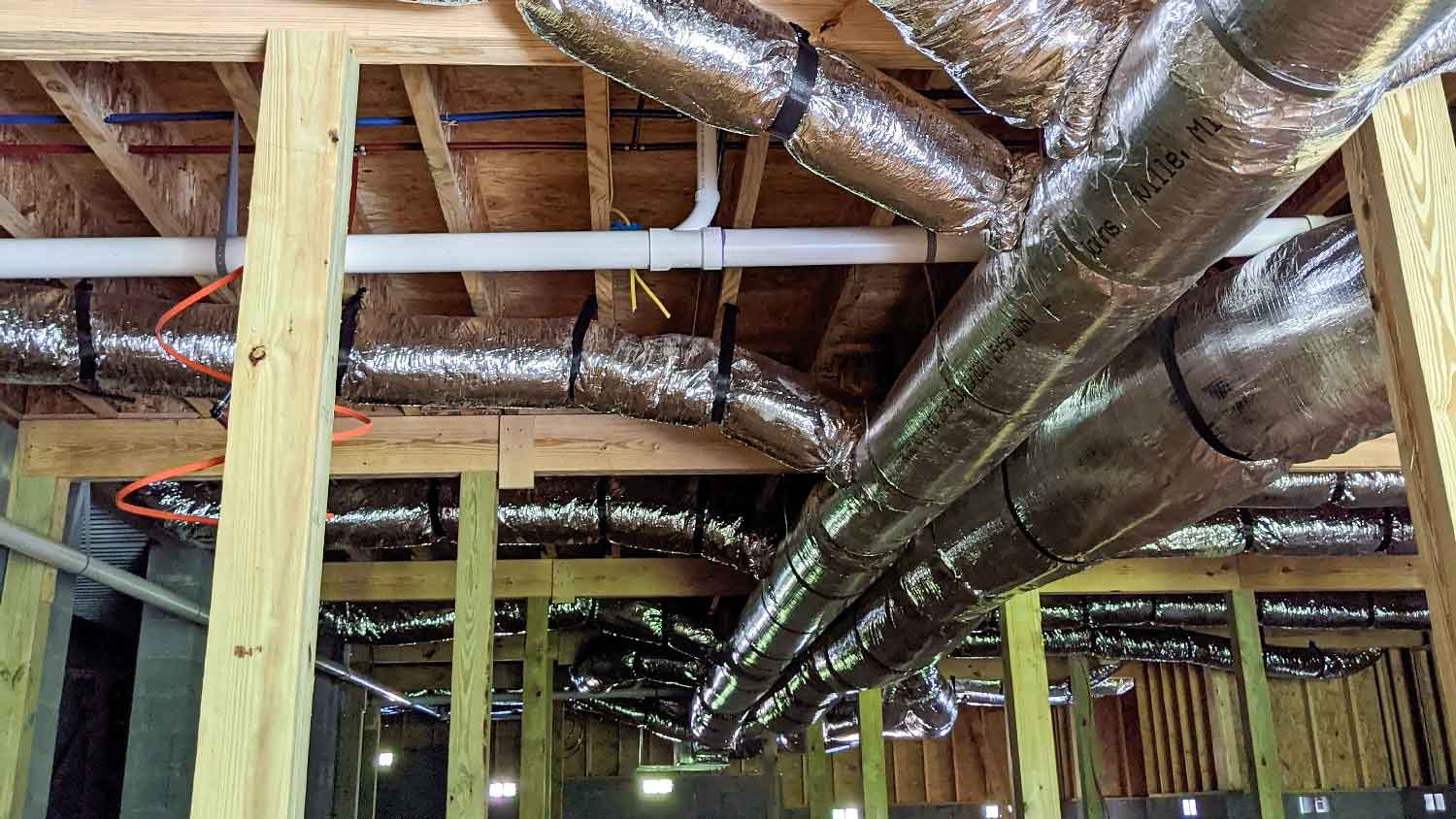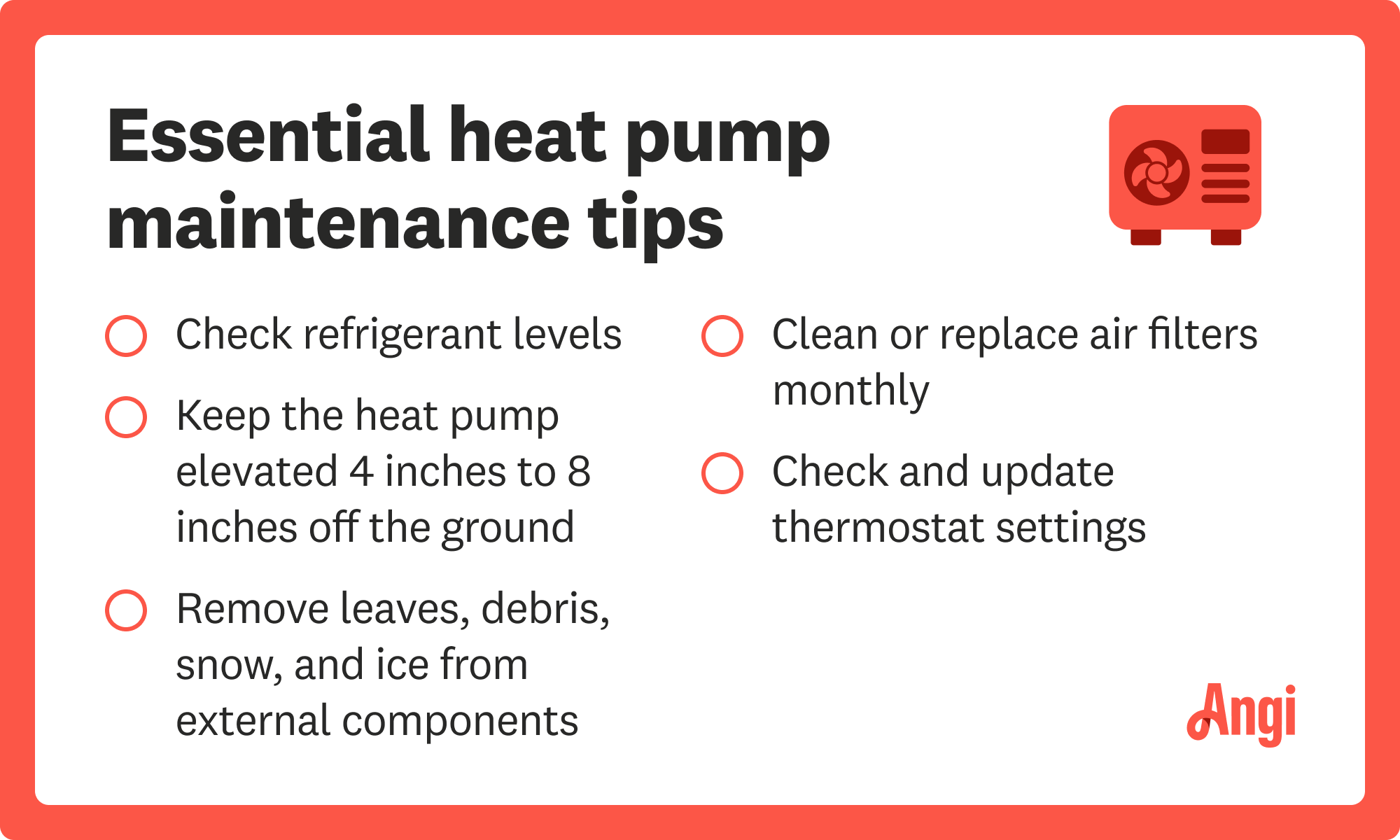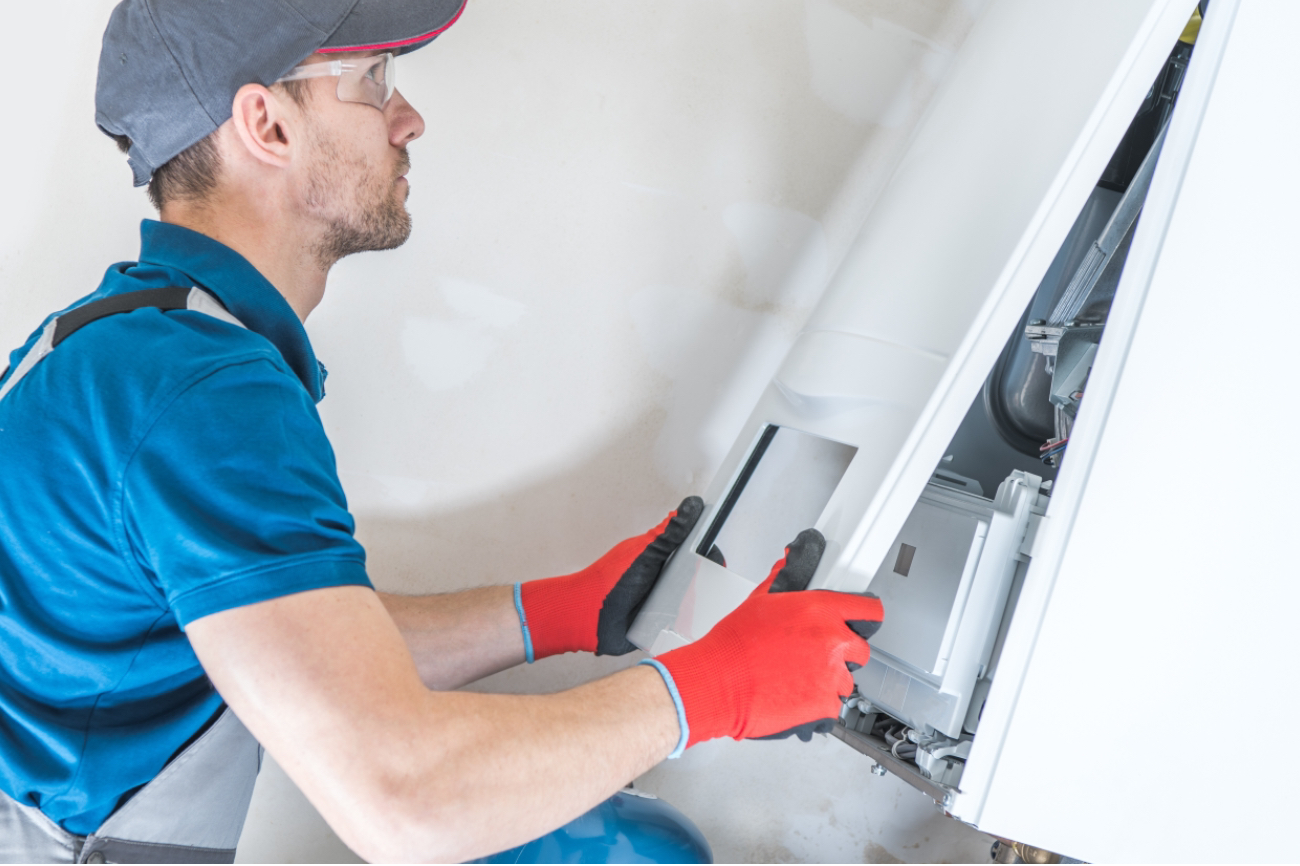
Discover the cost to install ductwork. Learn about average prices, cost factors, and tips to save money on your ductwork installation project.
Heating and air conditioning service costs depend on your project and location. Check with a local pro for your specific job.
Heat pump costs in Raleigh, North Carolina, depend on the specifics of the project.
Mini-splits and other air-source heat pumps are less expensive than geothermal heat pumps.
Heat pumps with high efficiency ratings are pricier than less efficient units.
Ductwork replacement, labor, and permits can also increase your heat pump installation costs in Raleigh.
Heat pump costs in Raleigh, North Carolina, often range from $4,571 to $7,629, with most people spending around $6,067. Costs vary due to price differences in heat pump type, size, and efficiency, as well as differences in contractor rates. Explore these cost factors to better understand how much you’ll pay for a new heat pump in the North Carolina capital.
In Raleigh, your heat pump installation price is heavily influenced by the specific heat pump you choose. Here’s how your heat pump’s type, size, and efficiency affect your overall costs.
There are several types of heat pumps available, but in most cases, you’ll be choosing between an air-source and a ground-source heat pump.
Heat pumps both heat and cool your home and can be ducted or ductless. They work similarly to air conditioners, but heat pumps can reverse the cooling process and also warm your home.
Air-source heat pumps—and in particular, ductless mini-splits—are more popular and less expensive than ground-source heat pumps. However, ground-source heat pumps (which are also called geothermal heat pumps) last longer.
| Heat Pump Type | Average Unit Cost |
|---|---|
| Ductless mini-split | $700–$6,000 |
| Air-source | $1,500–$4,500 |
| Ground-source | $2,400–$8,000 |
A heat pump’s size, which is measured in tons and British Thermal Units (BTUs), is another cost factor for this project. Units with higher tonnage or BTU ratings have more heating and cooling capacity, so they can heat or cool larger areas—but they’re more expensive to buy.
This chart shows how an air-source heat pump’s size—in tons and BTUs—affects its price:
| Heat Pump Size (in Tons) | Heat Pump Size (in BTUs) | Average Unit Cost |
|---|---|---|
| 2 | 24,000 | $1,200–$3,000 |
| 3 | 36,000 | $2,200–$5,800 |
| 4 | 48,000 | $3,000–$7,000 |
Like a furnace or AC unit, heat pumps are rated on how efficiently they use energy. However, since heat pumps can heat and cool, they have two efficiency ratings (rather than just one): Heating Seasonal Performance Factor (HSPF) for heating and Seasonal Energy Efficiency Ratio (SEER) for cooling.
Higher HSPF and SEER ratings translate to better energy efficiency, meaning they run on less electricity. While this can reduce your long-term costs, you’ll pay more up front for a higher-efficiency heat pump. You can see how SEER rating and cost correlate below:
| Heat Pump SEER Rating | Average Unit Cost |
|---|---|
| 15 | $1,800–$5,900 |
| 16 | $2,400–$6,200 |
| 18 | $2,900–$6,700 |
| 20 | $3,600–$9,500 |
If your home’s ductwork is old or in bad shape, your HVAC contractor will recommend replacing it as part of your heat pump installation. (This doesn’t apply if you’re installing a ductless heat pump.) In North Carolina’s capital, ductwork replacement costs run between $283 and $1,487.
However, if you have an older house or this is your first time installing any type of HVAC system, you might not have ductwork. In that case, you’ll need to add it, which costs $3,000 to $7,500 per 300 linear feet.
While the heat pump (and, in some cases, ductwork) will take up a big chunk of your budget, you’ll also need to account for a few other costs.
There are a couple of important credentials to look for when hiring an HVAC pro in Raleigh. First, your heat pump installer should hold a valid HVAC license from the North Carolina State Board of Examiners of Plumbing, Heating, and Fire Sprinkler Contractors. In addition, they should have a Section 608 certification from the Environmental Protection Agency (EPA) to work with refrigerants.
If you want to make sure you’re hiring a qualified, experienced installer, consider choosing a pro who’s certified by North American Technician Excellence (NATE). While optional, a NATE certification lets you know that your technician has hands-on HVAC experience, participates in ongoing training, and can perform the job safely.
In Raleigh, heat pump installation requires a permit and a plan review by the city. A good HVAC pro in Raleigh, North Carolina, will be familiar with the city’s permitting process and should obtain all required permits for your job. However, as the homeowner, you’ll pay for the permits and any fees for pulling them. This costs a few hundred dollars.
Raleigh’s 7.25% sales tax applies to any heat pump purchased in the city. If you were to buy a $2,500 heat pump (as an example), this would add $181 to your project costs.
There are a couple of rebate programs available to help you reduce the cost of installing a heat pump in Raleigh. For example, with Energy Saver North Carolina, you can get up to $8,000 back after installing an Energy Star-certified heat pump. Duke Energy offers as much as $2,500, depending on the type of heat pump and its efficiency ratings.

Since a heat pump can heat and cool, it’s a good solution to keep your home comfortable all year long. It’s particularly valuable in a city like Raleigh, where you endure hot and humid Southern summers, as well as occasional winter snowfall.
If you end up selling your house, a solid heating and cooling system is something that potential buyers will appreciate, too. In fact, this type of project can boost your property’s value by 5% to 7%.
Home is the most important place on earth, which is why Angi has helped more than 150 million homeowners transform their houses into homes they adore. To help homeowners with their next project, Angi provides readers with the most accurate cost data and upholds strict editorial standards. We survey real Angi customers about their project costs to develop the pricing data you see, so you can make the best decisions for you and your home. We pair this data with research from reputable sources, including the U.S. Bureau of Labor Statistics, academic journals, market studies, and interviews with industry experts—all to ensure our prices reflect real-world projects.
Want to help us improve our cost data? Send us a recent project quote to [email protected]. Quotes and personal information will not be shared publicly.
From average costs to expert advice, get all the answers you need to get your job done.

Discover the cost to install ductwork. Learn about average prices, cost factors, and tips to save money on your ductwork installation project.

What you’ll pay in Columbus, OH, for furnace repairs depends on many factors. Here’s a breakdown of what can go wrong and the cost to fix those issues.

If your air conditioning unit isn’t functioning properly, you might need an AC recharge. Our guide will detail what a typical AC recharge cost looks like.

When you notice hot and cold zones in your home, it pays to learn how to balance airflow in your ducts to even out the temperature.

Having dirty evaporator and condenser coils works your HVAC system harder than it needs to. Here’s how to clean your air conditioner coils like a pro.

Discover heat exchanger replacement costs to learn about price factors, labor, and ways to save before hiring a pro or starting your project.